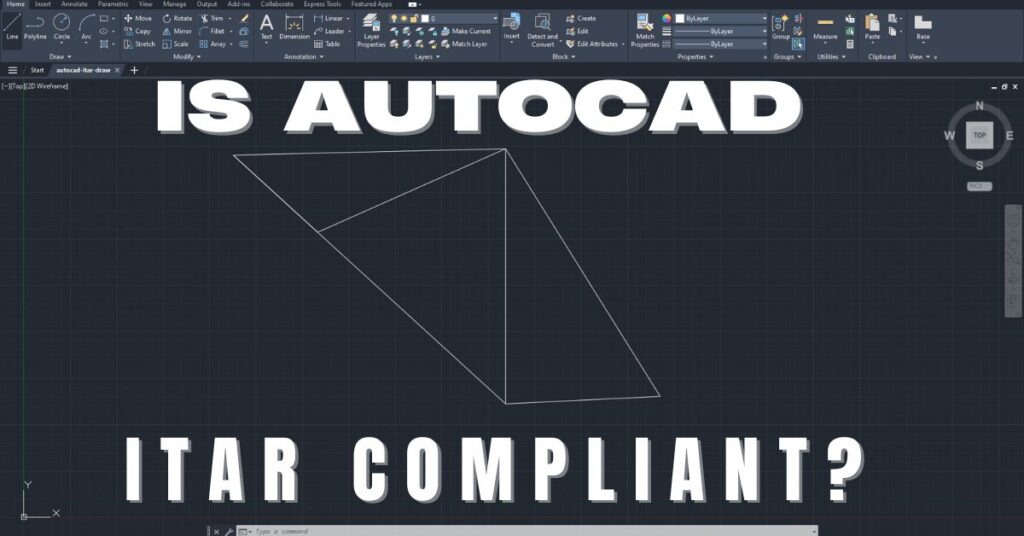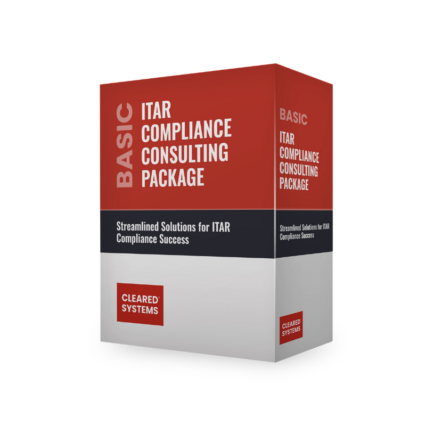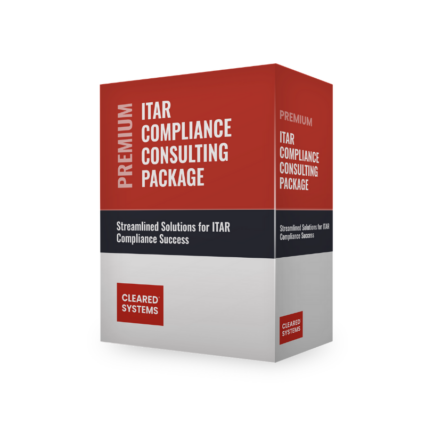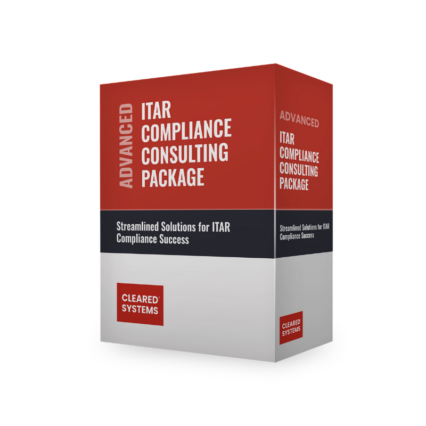ITAR Explained: Why It Matters for U.S. Companies
The International Traffic in Arms Regulations (ITAR) is a set of U.S. government regulations designed to control the export and import of defense-related articles and services. If your company manufactures, sells, or distributes technology defined on the U.S. Munitions List (USML), you must comply with ITAR. Non-compliance with ITAR can result in severe penalties, including fines, imprisonment, and loss of export privileges.
But why is ITAR so crucial for U.S. companies, and what should you know to stay compliant? In this article, we will break down ITAR, its impact, and what businesses need to do to ensure compliance.
What is ITAR?
ITAR was established to ensure that sensitive defense-related technology does not fall into the wrong hands. This regulation is enforced by the U.S. Department of State’s Directorate of Defense Trade Controls (DDTC). It governs the export, re-export, and import of defense-related articles and services.
If your company deals with items listed under the U.S. Munitions List (USML), which includes military technologies like firearms, spacecraft, and technical data, you need to ensure full compliance with ITAR.
What Does ITAR Cover?
ITAR controls the following categories of items:
- Defense articles such as weapons, ammunition, and military equipment.
- Technical data related to the design, development, or production of defense articles.
- Defense services, which includes the provision of technical assistance and training related to defense articles.
The USML specifies the controlled items, covering 21 categories ranging from firearms and ammunition to spacecraft systems. Even if your product is not directly related to military use, it could still be subject to ITAR if it has military applications.
Why ITAR Matters for U.S. Companies
For U.S. companies, compliance with ITAR is essential, especially for those in the defense, aerospace, and technology sectors. Here are some reasons why ITAR compliance matters:
1. Avoiding Legal Penalties
The penalties for ITAR violations can be severe. Companies found guilty of violating ITAR can face civil fines of up to $500,000 per violation and criminal penalties including fines of up to $1 million and up to 20 years of imprisonment for individuals involved.
Additionally, companies may lose their export privileges, which can have a devastating impact on their ability to do business internationally.
2. Protecting National Security
ITAR is not just about rules and regulations; it’s about national security. The U.S. government uses ITAR to protect sensitive military technologies from falling into the hands of adversaries or unauthorized foreign entities. By complying with ITAR, companies contribute to the protection of U.S. national security interests.
3. Access to International Markets
Companies that comply with ITAR are able to legally export defense articles and services. This opens up opportunities for U.S. companies to participate in international defense contracts and collaborations with foreign governments and allies.
Non-compliant companies are barred from participating in such opportunities, losing out on a major source of revenue and growth.
4. Building Trust with Partners and Clients
Compliance with ITAR helps build trust with partners, clients, and government entities. Businesses that demonstrate a strong commitment to regulatory compliance are more likely to win contracts and form successful partnerships. Additionally, compliance helps safeguard a company’s reputation, ensuring it is viewed as reliable and secure in sensitive markets.
Who Needs to Comply with ITAR?
While ITAR directly impacts companies in the defense sector, its scope is much broader. Any company that manufactures, exports, or brokers defense-related articles, including components and technical data, may be subject to ITAR.
Key Industries Affected by ITAR:
- Defense contractors
- Aerospace companies
- Technology firms involved in encryption or communication systems
- Universities and research institutions that handle military-related technologies
- Consultants or brokers who assist in exporting defense articles
What If My Company Sells to Foreign Entities?
If you export controlled items to foreign entities, including foreign governments, you are required to obtain export licenses under ITAR. You also need to be aware of re-export controls, which apply when your products are exported from one foreign country to another.
Exporters must work with the Directorate of Defense Trade Controls (DDTC) to ensure they have the proper authorization to export defense articles or provide defense services to foreign entities.
ITAR Compliance Steps for U.S. Companies
Ensuring ITAR compliance can be complex, but the following steps will help you get started:
1. Register with the DDTC
The first step to compliance is registering with the Directorate of Defense Trade Controls (DDTC) if your company manufactures, exports, or brokers defense-related products. Registration is required even if you only deal with technical data or provide defense services.
2. Classify Your Products
Next, determine if your products are listed on the USML. If your product falls under any of the 21 categories on the list, it is subject to ITAR. You may need to consult with legal or compliance experts to ensure proper classification.
3. Apply for Export Licenses
Before exporting any defense-related items or technical data, you must apply for the appropriate export license from the DDTC. This license ensures that your export is approved and compliant with ITAR requirements.
4. Implement Compliance Policies and Training
Create internal compliance policies that define how your company will manage ITAR-controlled items. This should include:
- Detailed procedures for handling technical data and defense articles.
- Internal audits to ensure compliance.
- Regular ITAR training for all employees involved in the production or export of controlled items.
5. Monitor Foreign Interactions
Keep track of any interactions with foreign persons or entities, including customers, partners, and suppliers. You must ensure that these interactions comply with ITAR restrictions, particularly when dealing with technical data.
6. Recordkeeping
Maintain detailed records of your exports, licenses, and ITAR compliance efforts. Proper documentation is essential to prove compliance in the event of a government audit.
Consequences of ITAR Non-Compliance
Non-compliance with ITAR can lead to significant consequences, including:
- Fines and penalties: Up to $500,000 per violation.
- Criminal prosecution: Fines of up to $1 million and prison time.
- Loss of export privileges, potentially crippling your international business operations.
- Reputation damage, which can harm your relationship with clients, partners, and the government.
Conclusion
ITAR is a critical regulation that impacts a wide range of U.S. companies, particularly those involved in defense, aerospace, and technology. Understanding ITAR and ensuring compliance is essential to protect your business from penalties, safeguard national security, and capitalize on international market opportunities.
By following best practices for ITAR compliance, including registering with the DDTC, classifying your products, and obtaining the necessary licenses, your company can navigate the complexities of ITAR and stay competitive in the global marketplace.
Share in Social Media
See More Case Studies

Securing Defense Contracts: A DFARS 252.204-7012 Compliance Case Study
Discover how Cleared Systems helped a Federal Contractor successfully achieve DFARS 252.204-7012 compliance by strengthening its cybersecurity posture, giving it a competitive edge when bidding for DoD Contracts.

What is GCC High? For ITAR & CMMC 2.0
Microsoft 365 Government Community Cloud (GCC) High is a specialized cloud solution tailored for U.S. federal, state, local, tribal, and territorial government organizations, as well as for contractors who hold or process data subject to specific security regulations. In this article, we will explore the features, benefits, and differences between Microsoft 365 GCC High and other Office 365 offerings.

Is AutoCAD ITAR Compliant? A Comprehensive Guide for Defense Manufacturers
Defense contractors and manufacturers working with sensitive military technologies face a critical question when selecting computer-aided design software: Is AutoCAD ITAR compliant? This question becomes

How to Get Help in Windows: Guide to Security and Compliance Support
In today’s digital landscape, ensuring your computer systems are secure and compliant with industry regulations is essential for both businesses and individuals. Windows, as one

Microsoft Copilot for GCC High: Enhancing Security and Compliance
In today’s fast-evolving digital landscape, organizations that handle sensitive data, particularly those in government sectors or defense contractors, face growing pressure to maintain strict security
Partner with Us for Compliance & Protection
We’re happy to answer any questions you may have and help you determine which of our services best fit your needs.
Your benefits:
- Client-oriented
- Security
- Compliance
- Peace of mind
- Efficiency
- Trust
What happens next?
Schedule an initial meeting
Arrange a discovery and assessment call
Tailor a proposal and solution



